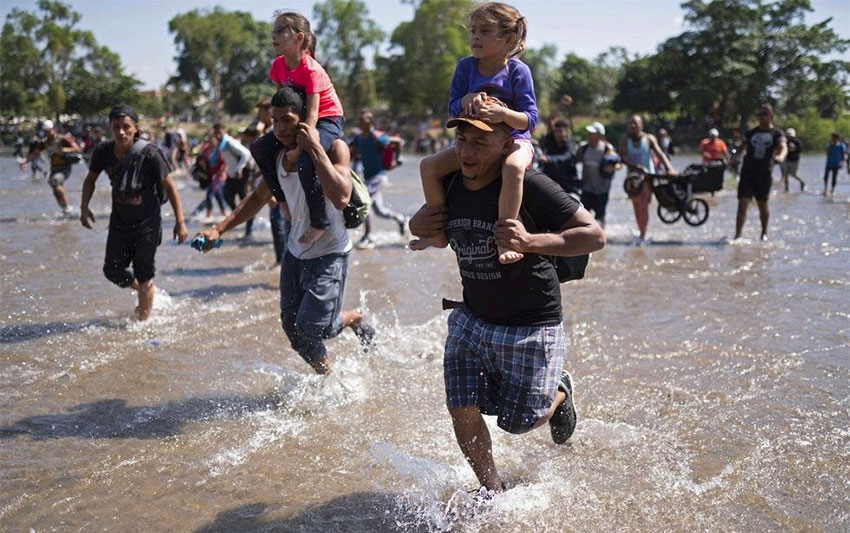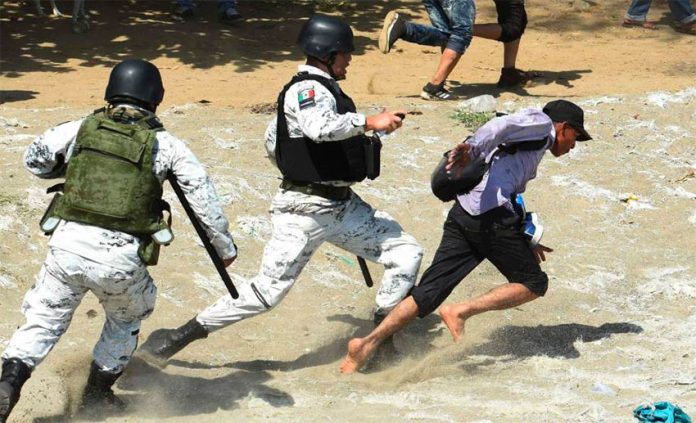The federal government is rounding up migrants for their own protection, President López Obrador said on Wednesday.
“We’re protecting them, we don’t want them to get to the north [of Mexico where] they could be nabbed [by criminal groups] or become victims of crime. That’s what we’re doing,” he told reporters at his morning news conference.
The president’s remarks came two days after the National Guard used tear gas and batons to repel hundreds of Central American migrants, including pregnant women and children, who waded across the Suchiate River between Guatemala and Chiapas to try to enter the country.
Members of the so-called “2020 caravan,” the first large group of migrants to reach Mexico’s southern border this year, decided to ford the river after Mexican authorities blocked their entry via the official border crossing. They were also advised that they would not be issued with transit visas that would allow them to travel legally to the northern border to seek asylum in the United States.
About 500 migrants succeeded in getting past the guardsmen, who had formed a human wall, but the majority were detained a short time later. Those found not to have genuine claims to asylum will likely be deported.

López Obrador acknowledged that the government’s increased enforcement against migrants is controversial but stressed that the National Guard and immigration agents have been given a clear order to respect their human rights.
However, his claim that the government is detaining migrants for their own protection appears disingenuous considering that it first deployed the National Guard to ramp up enforcement against them in order to appease United States President Donald Trump, who threatened in the middle of last year to impose blanket tariffs on Mexican goods if more wasn’t done to stop asylum seekers reaching the Mexico-U.S. border.
Deporting migrants to violence-stricken Central American countries such as El Salvador and Honduras would also appear incompatible with the protection referred to by the president.
Asked by a reporter about the use of tear gas on Monday, López Obrador asserted that it was an “isolated case,” adding that it is not a strategy that the government will use often to stop migrants trying to enter Mexico illegally.
“. . . We want peace and to resolve differences with dialogue, with agreement,” López Obrador said.
“There is an instruction not to use force . . . The National Guard resisted a lot because there was aggression on the part of the migrants, they even threw stones . . . but those from the National Guard resisted, they didn’t fall into the trap of responding with violence,” he added.
“That’s possibly what the leaders of the caravan, and our adversaries, were looking for . . . but fortunately it didn’t get out of hand . . .”
Source: El Financiero (sp)
